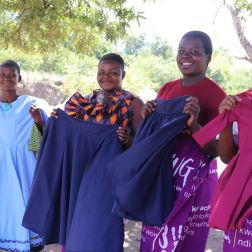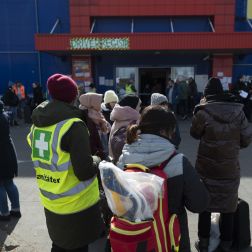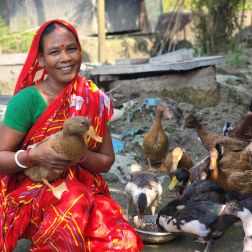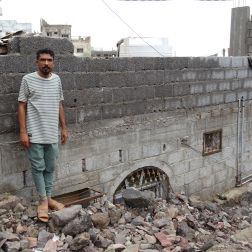- 7 mins read time
- Published: 12th August 2020
International Youth Day 2020
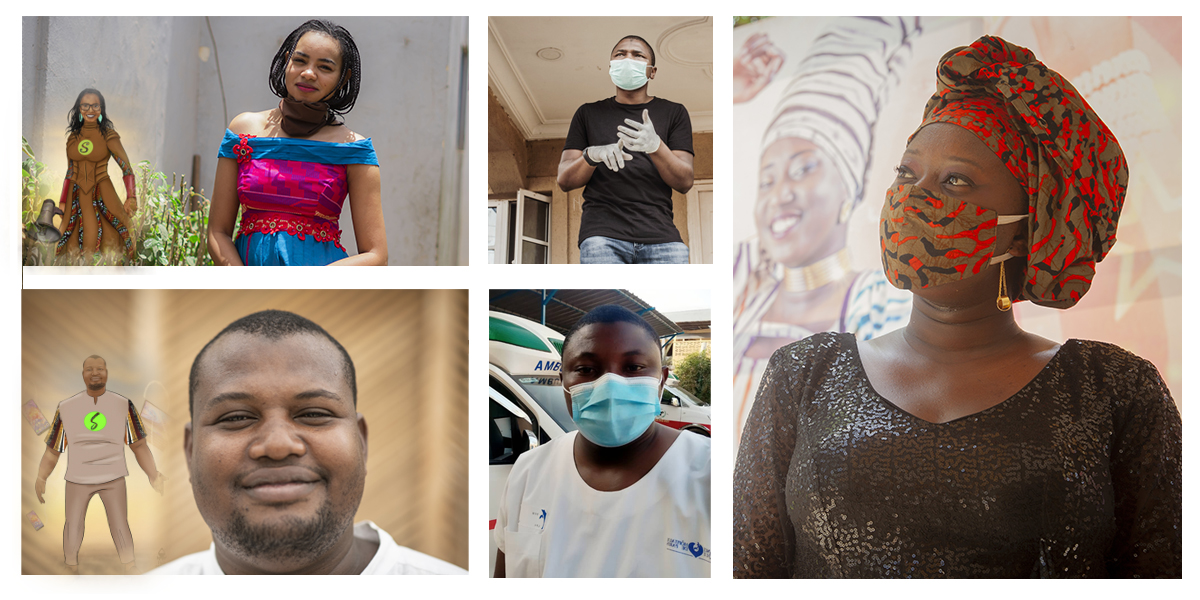
Youth and COVID-19 in the Sahel – when mutual aid goes viral
West Africa has been struck by COVID-19 lockdown measures, as much as the virus itself. Restrictions on movement and the closing of borders and markets came at the worst time, during the harvest period, which mobilises the workforce, especially women and young people. Many people now find themselves without work and income in a context where 66 percent of the working population is in precarious employment and do not have sufficient resources to survive without daily work. To make matters worse, this is happening while food prices rise and the spaces to sell products become increasingly inaccessible.
With nearly 150,000 confirmed cases and over 2,000 deaths so far, the measures put in place by governments are essential to slowing the spread of the virus among the most vulnerable communities.
But to cope with the pandemic, West Africa has a major asset: its youth.
Seventy-six percent of West Africans are under 25, making it the youngest population in the world. Several young people have stood in solidarity and mobilised by moving the lines in their own way and embodying the hope of a better tomorrow. We went to meet them in Burkina Faso, Niger, Mali, Nigeria and Chad. They are all young people with very real power who, in times of crisis, have chosen to be part of the solution.
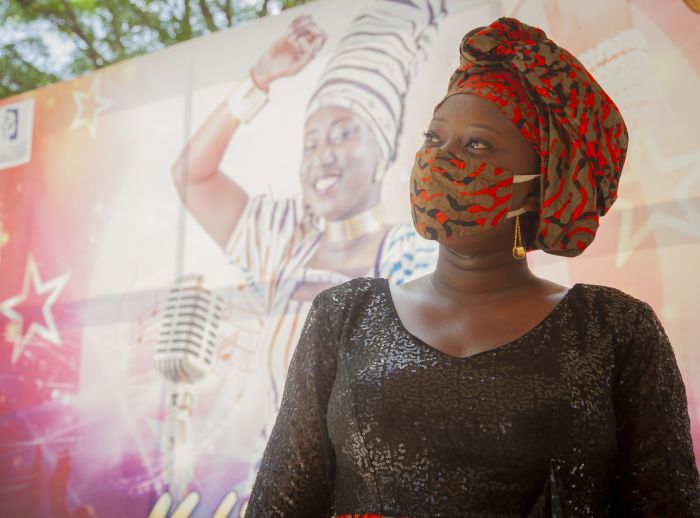
Malika, Burkina Faso
“It’s hard to get someone to understand COVID-19 when they’re hungry.”
Malika Ouattara, better known as “Malika la Slameuse”, is a slam music artist in Burkina Faso. She puts her talent and energy at the service of social causes, not only through her music, but as president of the Slamazone Foundation, which she created in March 2019 to put her art to the benefit of the poor.
Faced with the coronavirus crisis, Malika wasted no time in readjusting her activities: “We are raising awareness on how to prevent the spread of COVID-19 with hygienic measures and we made a call to buy 10 ventilators for the country.”
But the challenges are enormous in the face of this crisis, which is now adding to a worsening security situation that has internally displaced hundreds of thousands of people with disastrous humanitarian consequences. “We are talking about the disease, the virus, but we must not forget that hunger is a disease itself which perhaps kills much more… There is a crisis in the crisis. We have to broaden our goals and it's really a big job to focus on several issues at once.”
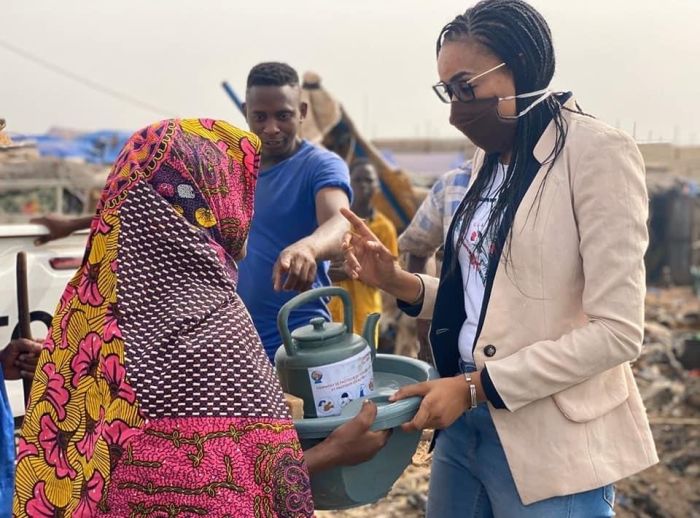
Adam, Mali
“The virus knows neither rich, poor, young, nor old. It attacks everyone. So let's join hands and let's fight together so that this virus cannot spread."
Adam is a young Malian activist who fights so that the demands of young people are heard. She fights for democracy and the promotion of citizenship.
In response to the COVID-19 crisis, Adam comes to the aid of displaced persons and destitute children through the organisation she created, the Association of Youth for Active Citizenship and Democracy (AJCAD). She distributes hygiene kits, including soap, hand gel and gloves, and then uses web TV and social networks to raise awareness about the disease and hygiene measures to prevent it: “There are still people in Mali who don't believe in the existence of this virus,” she explains.
On her web TV, Adam challenges and warns of the negative impact of lockdown restrictions on small traders as well as the absence of accompanying measures to help them cop

Hamzat, Nigeria
“COVID-19 has widened the inequality gap in our society.”
Hamzat is an activist who makes it a point to ensure transparency in the use of public funds in Nigeria, which has the least-engaged government in the world in the fight against inequalities, according to a 2019 Oxfam report. The impacts of COVID- 19 only amplify inequalities: “To date, almost 100 million people are poor [in Nigeria] and many of them have been locked down.”
With millions of euro donated by individuals and organisations – including the European Union – to Nigeria to help fight the coronavirus pandemic, Hamzat’s action is all the more necessary. He uses digital tools and social networks to monitor public financial resources while respecting confinement and social distancing measures: “It is important to document these expenses so that, after COVID-19, citizens have access to audits and can hold the government to account.”
Hamzat’s influence extends beyond his country’s borders. The group he had already created before the pandemic, Follow the Money, brings together 6,000 young people who monitor the use of public financial resources in education, water and sanitation in seven African countries.
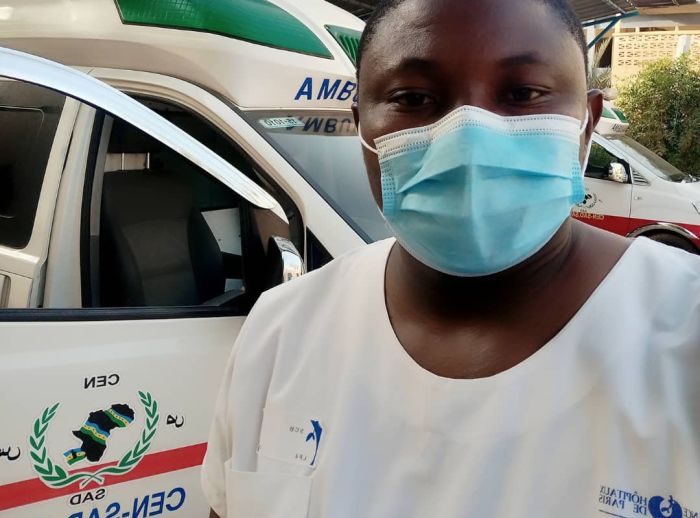
Awal Issa Rachid, Niger
“It is not loyal for a health worker to hide in such moments when his expertise is sought after more than ever.”
Awal Issa Rachid is a young doctor who has just graduated and does not run away from being on the front line of the COVID-19 crisis in Niger. He and his young colleagues from the Association of Young Doctors of Niger are still awaiting integration into the Niger public service. However, there is no question of waiting in the face of the rapidly spreading pandemic in the country.
“It is our responsibility to fulfill our duty as citizens and to assist people in distress.”
Dr. Rachid takes care of people infected with the coronavirus, including those who are rejected or marginalised within their community because of the contagious and virulent nature of the disease. He does this without a salary, and despite having minimal protective equipment to protect him from exposure: “We need protection kits to minimise the risks of contamination.”
Dr. Rachid believes that Niger’s coronavirus response requires the collective efforts of all: “We must all lead the fight against coronavirus disease. It is our responsibility to fulfill our duty as citizens to help sick people. Everyone can take actions to reduce the spread of the disease.”
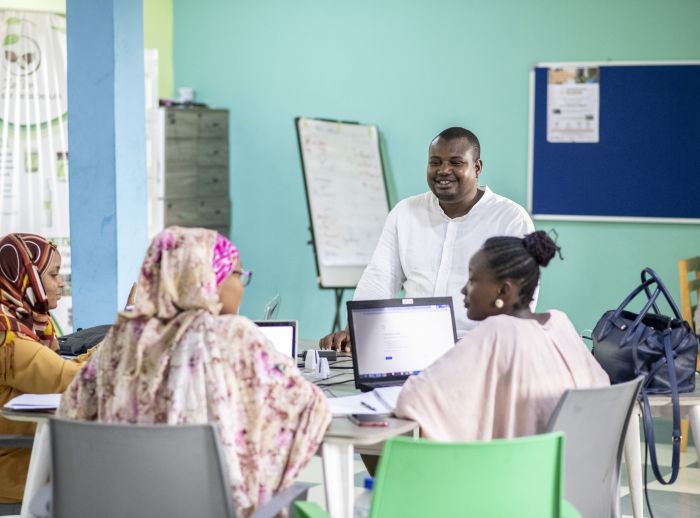
Salim, Chad
"Misinformation is worse than a pandemic.”
Salim is a young Chadian activist who fights for digital access for all. A computer scientist by profession, he is the co-founder of WenakLabs, a youth association that promotes active citizenship and participative democracy through technological innovation and the opening up of public data.
Salim was quick to respond to the COVID-19 crisis. From the start of the pandemic in Chad, he created the “1313” mobile application to raise awareness, inform and combat false information related to COVID-19. The term “1313” refers to the information line set up by the Ministry of Posts and New Technologies of Chad and with which Salim has established a partnership. This has enabled him to integrate the national cell in charge of monitoring and health security. “All of these actions have been selfless because we are aware of what this pandemic is causing to our generation. And it is only together, by mobilising all of us that we can take action against this pandemic.”
Contagious passion
These initiatives are just a sample. The dynamism and mutual aid among young people in West Africa are contagious (in a really good way!) and have spread quickly during the COVID-19 crisis. To find out more, just take a look at the COVID-19 community engagement dashboard in the region.
A special mention to Africtivistes who continue to defend democratic values, human rights and good governance through digital technology by adapting to the context of COVID-19.
In partnership with Oxfam, they are preparing to map youth initiatives linked to COVID-19 in West Africa to promote them among communities and with local and regional authorities. This will also help create a network of exchange and inspiration, stimulating the civic engagement of young people across West Africa.
On this International Youth Day 2020, we salute young activists and leaders across the world for their contribution and role in finding solutions, creating innovations and providing support to those who need it most during a global pandemic that has inevitably impacted young people everywhere.
